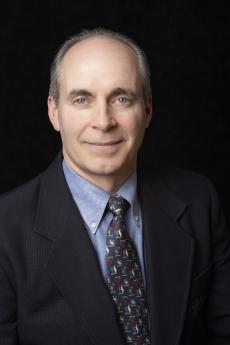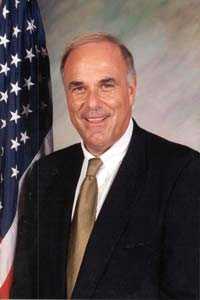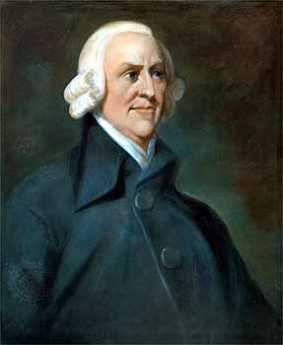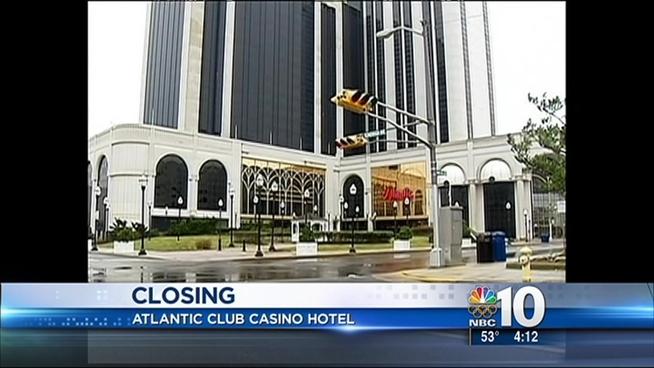Related Topics
Philadelphia Politics (2)
New topic 2014-07-22 23:24:15 description
Casino Warfare

|
| Stephen P. Mullin |
Stephen P. Mullin came by the Right Angle Club and told us what happened in the casino world, in about five sentences. As anyone who reads the papers will know, four brand-new, billion-dollar, casinos are going broke in Atlantic City. What most of us didn't know was that gambling revenues are going up, nationally, and more people are visiting casinos than ever before. That doesn't sound right.

|
| Ed Rendell |
All it takes to understand this paradox is to look at a map of casinos in the region, with a focus on the Philadelphia/New Jersey region. A few years ago, Las Vegas and Atlantic City pretty much had a monopoly on casinos in America, and then the Indians found they, too, had a special political exemption. And then Pennsylvania's ebullient governor, Ed Rendell noticed that most of the license plates were Pennsylvania plates, going over the various bridges to New Jersey. So he hired Steve to be a consultant, and sure enough, an awful lot of money made in Atlantic City was Philadelphia money. The Legislature was strong-armed into permitting slot machines in Pennsylvania, the necessary building permits were issued, and Pennsylvania started taking back its own gambling money. The New Jersey casinos promptly lost business, and the over-supply of them dragged the financially weakest of them, down the tube. Mystery solved, and that's about all there is to the story.

|
| Adam Smith |
Adam Smith once wrote that "The more you gamble, the more certain you are to lose." The gamblers lose money, and the neighborhoods turn sour, but this was the first I had heard that the owners of the casinos could lose money, too. And now, come to think of it, the politicians can lose money, as well. Not at first, perhaps, because a lot of gamblers want to try out the newest and latest slot machines, as well as look down on themselves through looking up, at the new mirrors on the bedroom ceilings. Speaking of that, Steve tells us that the big money is made on slot machines. The so-called table games lose money and are just for show. Which reminds me that I once ran into the man who invented the modern slot machine. He was a surgeon from the West Coast, but one of his patients complained that people were robbing the old-fashioned slots by drilling holes in the side when no one was looking. One of their buddies would come back later, and stick a metal wire in the hole, triggering a noisy jack-pot. My new friend the surgeon was a computer nut and substituted little computers for the clunky mechanicals. That frustrated the pilferers, but it also drove away from the ordinary folks who put in silver dollars instead of wires. They liked the clunking noises and flashing lights, so fake rattles, and flashing lights were installed, making everybody happy again. He was tired of taking out gall bladders, anyway, so he retired to cruise ships where he could spend his time entertaining passing doctors. He was advised that was a good thing to do, anyway, in order to keep himself healthy. People who owned a lot of old clunky mechanical ones are apt to be vengeful types, you see.

|
| Casino's Closing |
Well, the politicians who get bribed to permit casino licenses are delighted to tell you how much out-of-state money these benevolent institutions bring into the state, $1.4 billion dollars a year in the case of Pennsylvania. So they get re-elected to office in those hide-away little rural villages which characterize America's state capitals, where a number of them have just had brass plaques attached to their portraits, at least in Harrisburg, to commemorate this or that majority leader who afterward went to jail. As one of them just told the news media, "You can't change history, can you?" The City of Harrisburg just went bankrupt over some sewage disposal plant, and you may remember that Philadelphia was once the state Capital. The fact that 49 of the fifty state capitals are in small towns, without much in the way of investigative journalism, and the additional fact that most capitals have been moved from corrupt old cities to the regions inhabited by the noble savages, gives you a sign that this wasn't exactly an accident. The state government is clearly the weakest part of our political system, and its operation in the dark corners of states is more cause that symptom. Someday I'll tell you the story of a multi-billionaire who asked me to suggest a good place to donate some money. I suggested that funding several think tanks in state capitals might produce a significant improvement in the environment, and he thanked me for the advice. Unfortunately, he bought the Chicago Cubs instead, so the experiment never got tried out. There's no doubt that Chicago could use a little reform movement, too, judging by some of the political specimens that have recently crawled out from under that rock. While Philadelphia is neither as corrupt nor as contented, as it was a century ago. We get our fun bankrupting casinos in other cities.
Just one more story. Some New York potentates once took it in their heads to buy up some Health Maintenance Organizations (HMO). Somehow my name was referred to them, and I was hired as a consultant, to put on a white coat and walk around inspecting AC's local HMO. Naturally, I was driven down one of many new highways which New Jersey had built to attract the gambling trade, although I could have gone down on one of the newly refurbished train systems with the same purpose. Inside the HMO, I must say I have never seen so much syphilis, cirrhosis, schizophrenia, and associated medical features of the gay life, and I hope never to see that sort of medical excitement again. Those were the employees of the casinos, the so-called permanent members of the community. New Jersey may have enjoyed a brief spell of prosperity with out-of-state money. But if you balance that against the present rubbish heap, I'm not at all sure the taxpayers of New Jersey were financially better off for the experiment, on long-term balance.
Originally published: Tuesday, July 22, 2014; most-recently modified: Wednesday, May 15, 2019